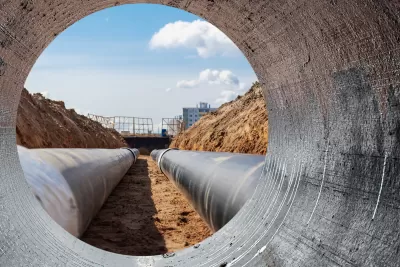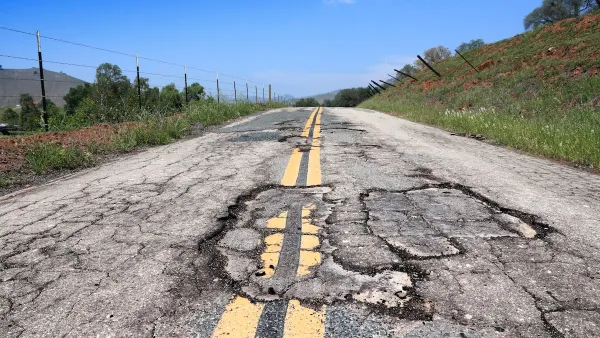A new federal program hopes to replicate the success of DARPA by developing ambitious infrastructure projects with government funding.

A new federal program titled the Advanced Research Project Agency for Infrastructure (ARPA-I) is taking aim at ‘moonshot’ projects that require massive research and development funding to develop, writes Andrew J. Hawkins in The Verge.
Some of the last century’s most important inventions, like the internet, GPS, and autonomous vehicles, grew out of the Defense Advanced Research Project Agency (DARPA), and Transportation Secretary Pete Buttigieg hopes ARPA-I could do similar things for innovation in the infrastructure sector.
ARPA-I was authorized as part of the Biden administration’s signature $1.2 trillion Bipartisan Infrastructure Law, which passed in 2021. In essence, the goal of the new agency is to futureproof the nation’s infrastructure against climate change, massive technology disruption, energy transition, or any other imminent challenge we have yet to conceive of.
The administration is calling on Congress to appropriate $19 million in additional funds to the program in 2024. “Arati Prabhakar, director of the White House Office of Science and Technology Policy, said that ARPA-I will bring together ‘talented individuals’ as program managers whose job it is to understand the scope of the challenge” and address three key tasks: “set a very big bold, barely feasible goal;” “build a plan that might actually be able to show that that goal is possible;” and “execute like mad.”
FULL STORY: A moonshot for infrastructure

Maui's Vacation Rental Debate Turns Ugly
Verbal attacks, misinformation campaigns and fistfights plague a high-stakes debate to convert thousands of vacation rentals into long-term housing.

Planetizen Federal Action Tracker
A weekly monitor of how Trump’s orders and actions are impacting planners and planning in America.

In Urban Planning, AI Prompting Could be the New Design Thinking
Creativity has long been key to great urban design. What if we see AI as our new creative partner?

King County Supportive Housing Program Offers Hope for Unhoused Residents
The county is taking a ‘Housing First’ approach that prioritizes getting people into housing, then offering wraparound supportive services.

Researchers Use AI to Get Clearer Picture of US Housing
Analysts are using artificial intelligence to supercharge their research by allowing them to comb through data faster. Though these AI tools can be error prone, they save time and housing researchers are optimistic about the future.

Making Shared Micromobility More Inclusive
Cities and shared mobility system operators can do more to include people with disabilities in planning and operations, per a new report.
Urban Design for Planners 1: Software Tools
This six-course series explores essential urban design concepts using open source software and equips planners with the tools they need to participate fully in the urban design process.
Planning for Universal Design
Learn the tools for implementing Universal Design in planning regulations.
planning NEXT
Appalachian Highlands Housing Partners
Mpact (founded as Rail~Volution)
City of Camden Redevelopment Agency
City of Astoria
City of Portland
City of Laramie





























